'Remarkable' concealed Roman villa unearthed
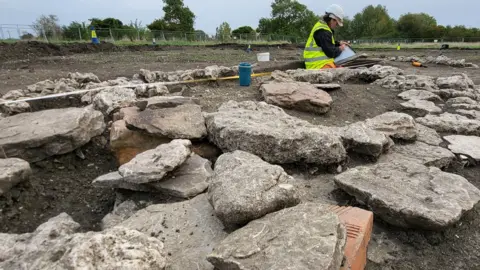 Red River Archaeology Group
Red River Archaeology GroupA "remarkable" Roman villa has been unearthed on a housing development.
Archaeologists from the Red River Archaeology Group came across the complex while working on a Barratt and David Wilson Homes housing development at Brookside Meadows in Grove near Wantage, Oxfordshire.
The site sits on a landscape inhabited since the Bronze Age which has been described as "artefact-rich".
The group's project officer said it was "an important centre of activities for a long time".
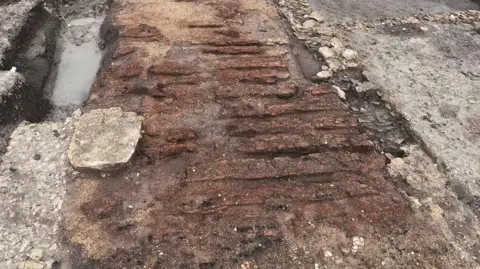 Red River Archaeology Group
Red River Archaeology GroupThe archaeologists said the villa complex was richly decorated with painted plaster and mosaics.
Finds also include a monumental hall-like "aisled building", which is a type of structure that seems to date from the late 1st Century AD.
This building is immediately adjacent to a "winged corridor villa", a high-status domestic structure with a central range and flanking wings of rooms accessed by a central corridor.
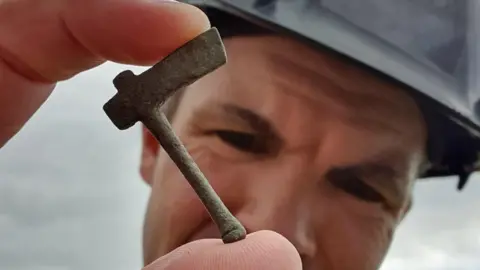 Red River Archaeology Group
Red River Archaeology Group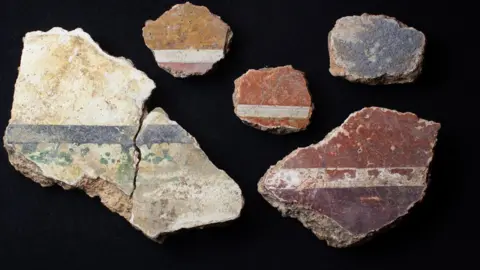 Red River Archaeology Group
Red River Archaeology GroupThe excavation is ongoing, but the archaeologists are almost certain the aisled building emerged later than the villa.
“The sheer size of the buildings that still survive and the richness of goods recovered suggest this was a dominant feature in the locality, if not the wider landscape," Louis Stafford, Red River Archaeology senior project manager, said.
Her colleague Francesca Giarelli added the site was "far more complex than a regular rural site and clearly was an important centre of activities for a long time".
Campbell Gregg, managing director for Barratt and David Wilson Homes Southern, said working with the group helped "develop the local historical understanding and heritage”.
Quantities of miniature votive axes, coins, jewellery and a complex brickwork floor have also been discovered.
They also came across hypocaust box-flue tiles from a heating system called hypocaust, which produces and circulates hot air below the floor of a room.
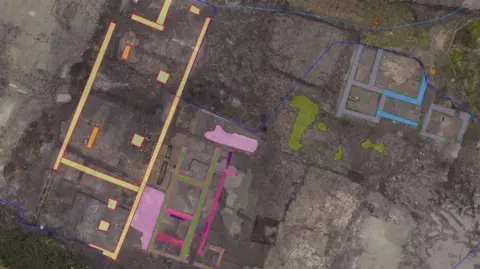 Red River Archaeology Group & SUMO GeoSurveys
Red River Archaeology Group & SUMO GeoSurveysFollow BBC South on Facebook, X, or Instagram. Send your story ideas to [email protected] or via WhatsApp on 0808 100 2240.
